From being on stage to discussing addiction Nutcracker’s Sam Salter isn’t holding back
The dancer takes Attitude through the highs and lows of his journey to be in the McOnie Company’s Nutcracker
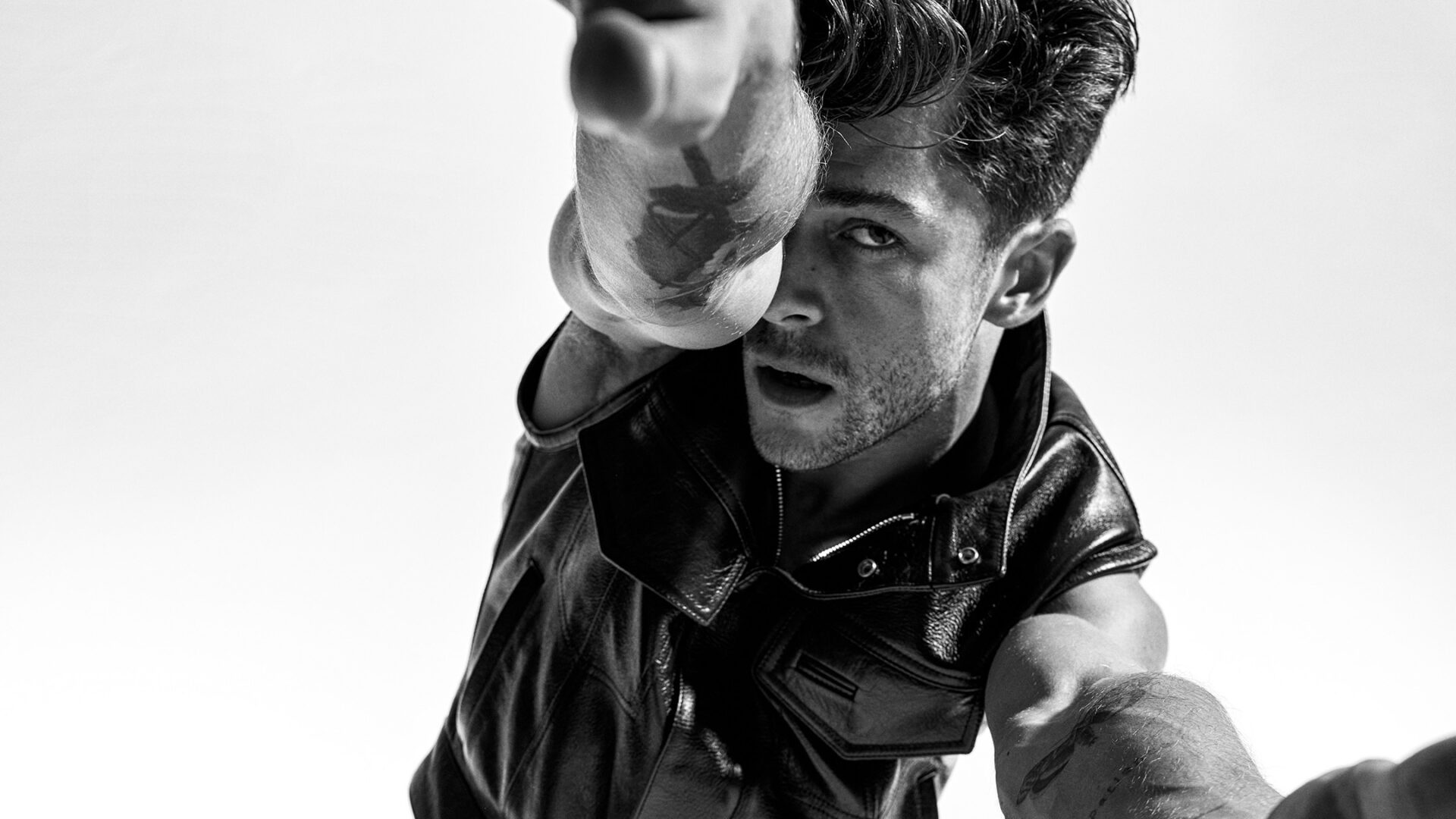
Dancer Sam Salter has always been very open about everything in his life, from his mental health and addiction struggles to his dance career and the lighter goings-on in his day-to-day life. So much so that when I call him for our interview, he informs me that he’s in the middle of having a wee.
I’m speaking to him a few days after he sustained a devastating injury just hours before the opening night of Nutcracker, where he plays the lead, at the Tuff Nutt Jazz Club, a pop-up under London’s Royal Festival Hall. In true Sam Salter fashion, he didn’t cancel our catch-up; instead, he spoke to me to work through the heartbreak as well as to talk about how special this role is to him.
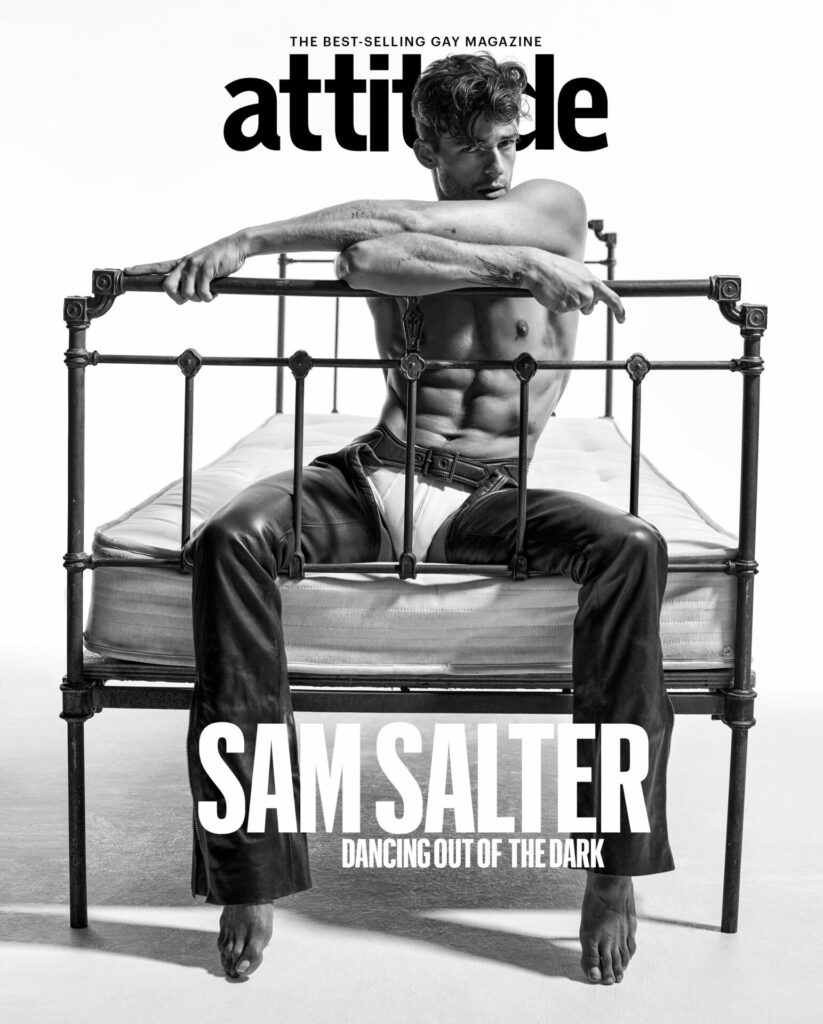
Luckily, one month on from our interview, a recovered Salter was treading the boards once more as Clive in a reimagining of festive classic The Nutcracker which explores lots of LGBTQ+ themes, including a romance between the two leads.
Salter’s character falls in love with an Action Man, played by Amonik Melaco, in a production directed and choreographed by Olivier Award-winning choreographer Drew McOnie and Mercury-nominated jazz artist Cassie Kinoshi. It’s Salter’s first leading role on the stage, and having overcome his injury, he’s finally ready for his moment in the spotlight.
“I think a lot of people will be quite touched by [Clive’s] motives and journey. It’s really special”
How did your injury happen?
I did two little jumps that a three-year-old would do in a playground, and I went over on my ankle, and it just popped. It was the day before opening night. We were meant to do our first dress run in a few hours. I put so much pressure on myself [during] the whole rehearsal process, and then it all came [tumbling] down. I just said to myself, ‘This is not happening.’ Everyone was like, “You’re OK, you’re OK, it’s just swollen.” But I knew, and Drew, the director, said to me, “I knew you knew [it was bad].”
It must have felt frustrating after you got injured last year during The Car Man production.
It is so unlucky. I did four shows of The Car Man, and then I got injured. It was one of my dream shows to do, so that broke my heart. But it was only a two-week run, which made it fairly easy to get over. I’d also torn my meniscus, so there was no hope of me coming back to that show. But with this Nutcracker production, there’s more hope. I can’t tell you how much it meant to me. I was just wailing in the hospital; I was just absolutely heartbroken.
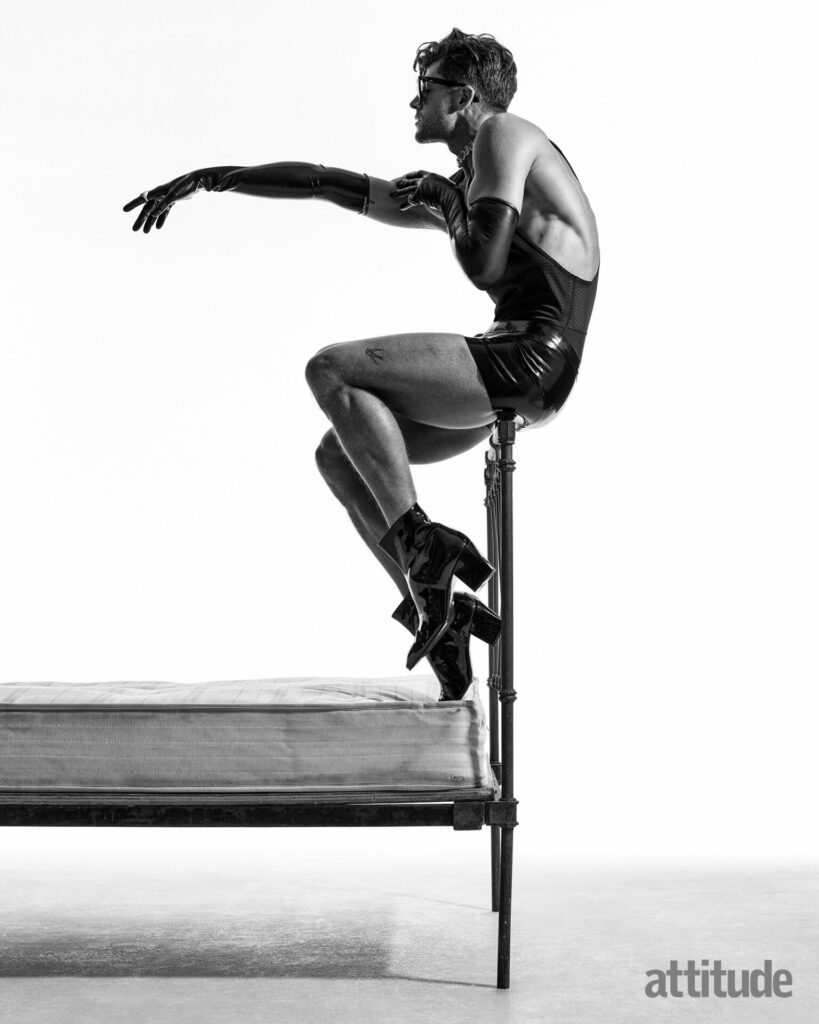
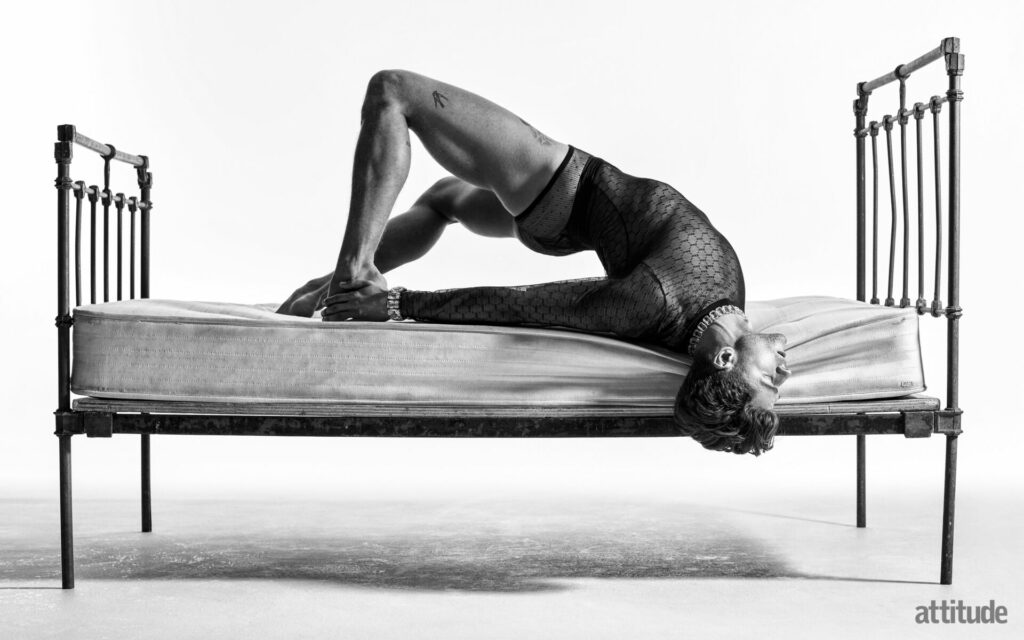
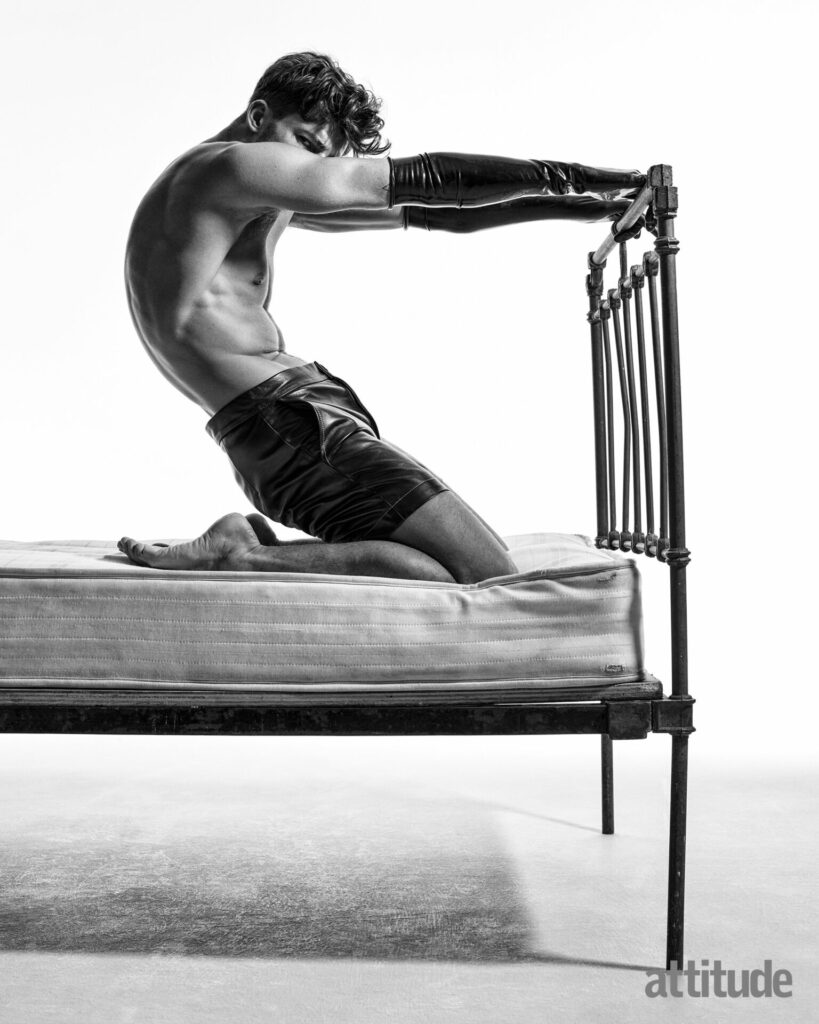
On a more positive note, what are you looking forward to with your return to Nutcracker?
I’m really looking forward to delving deep into the whole show and from beginning to end telling the story of Clive. He’s such a special character. I think a lot of people will be quite touched by his motives and journey. It’s really special.
“Growing up, I wish I [had known] myself, and that I [had been] fucking strong with my emotions”
The piece has an LGBTQ+ element to it, right?
It does, and the story has been evolving, even until very recently. At first, Clive was on this journey for self-acceptance because he identifies as gay. He falls in love with the Action Man. We thought initially that it was his longing to be found, but actually, what we’ve realised, moving through the rehearsal process, is he knows who he is. Growing up, I wish I [had known] myself, and that I [had been] fucking strong with my emotions. I wish I [had been] like, ‘No, this is who I am.’ I believe I am that now, but it took some time. But his character, he’s young, late teens, but he knows himself. And he teaches a lot of characters in the story a lot of lessons, which is beautiful.
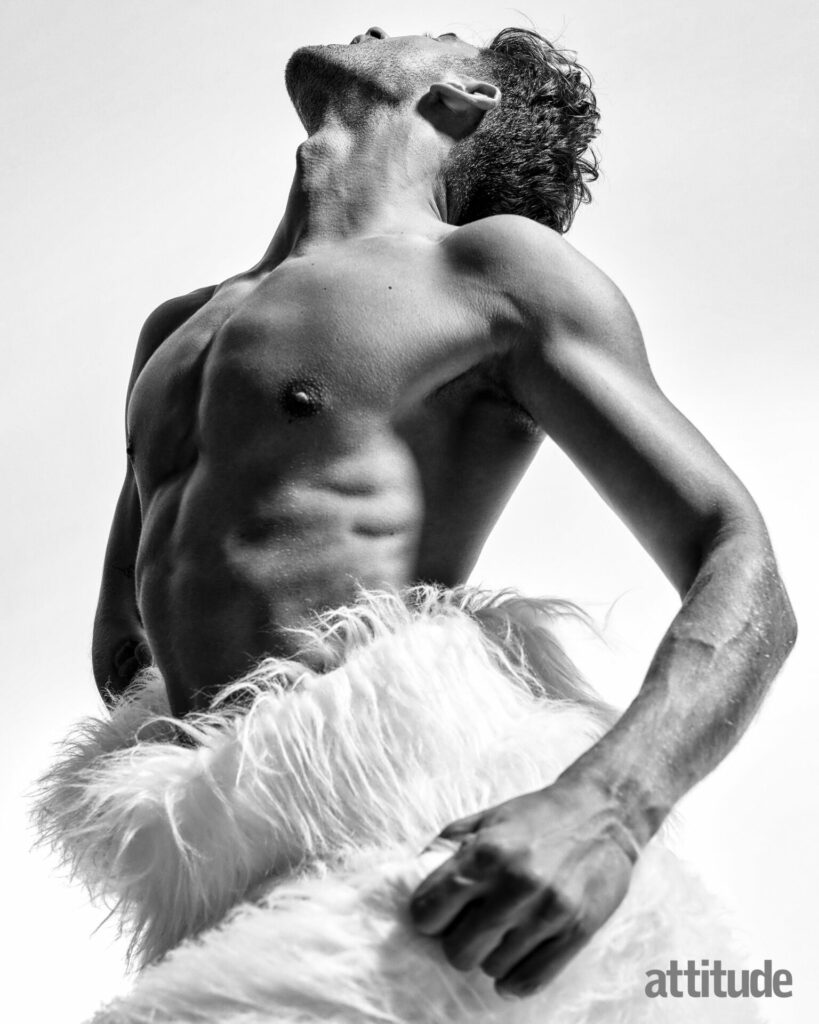
It’s interesting to go down a different route than the expected trope of self-discovery with an LGBTQ+ story.
I agree — because that does seem like the first route to go down, that he’s going to find himself by the end of the story. But that’s what’s different and super special about it. Hopefully, a young person, whether they are part of the community or not, can watch the show and go, ‘Wow, he can be himself up on that stage; I can too in this world.’ And then also for the older generation that come to see it and that have children can go, ‘Well, I’m going to really let my child just be themselves.’
“[Layton’s] teaching them and sprinkling this [LGBTQ+] acceptance into their brains, and I love that”
Do you think that this type of plot is indicative of the times? There seem to be more LGBTQ+ stories on streaming platforms and in literature too.
Even if you look across streaming services, there’s RuPaul’s Drag Race, there’s LGBTQ+ people in shows and, you know, including trans actors, it’s so great. But we’re obviously still not there fully. When you and I were younger, for instance, the difference [from then] is immeasurable — it’s amazing. Even if you look at my friend Layton [Williams]. I’m watching him on Strictly Come Dancing at the moment. That is a very wide audience all over the UK, and whether they like it or not, he’s teaching them and sprinkling this acceptance into their brains, and I love that. Some of the comments he gets are horrendous, but he is so powerful and strong. And there’s just something so special about things like that, it means something, and it moves us — even if it’s a tiny step — forward.
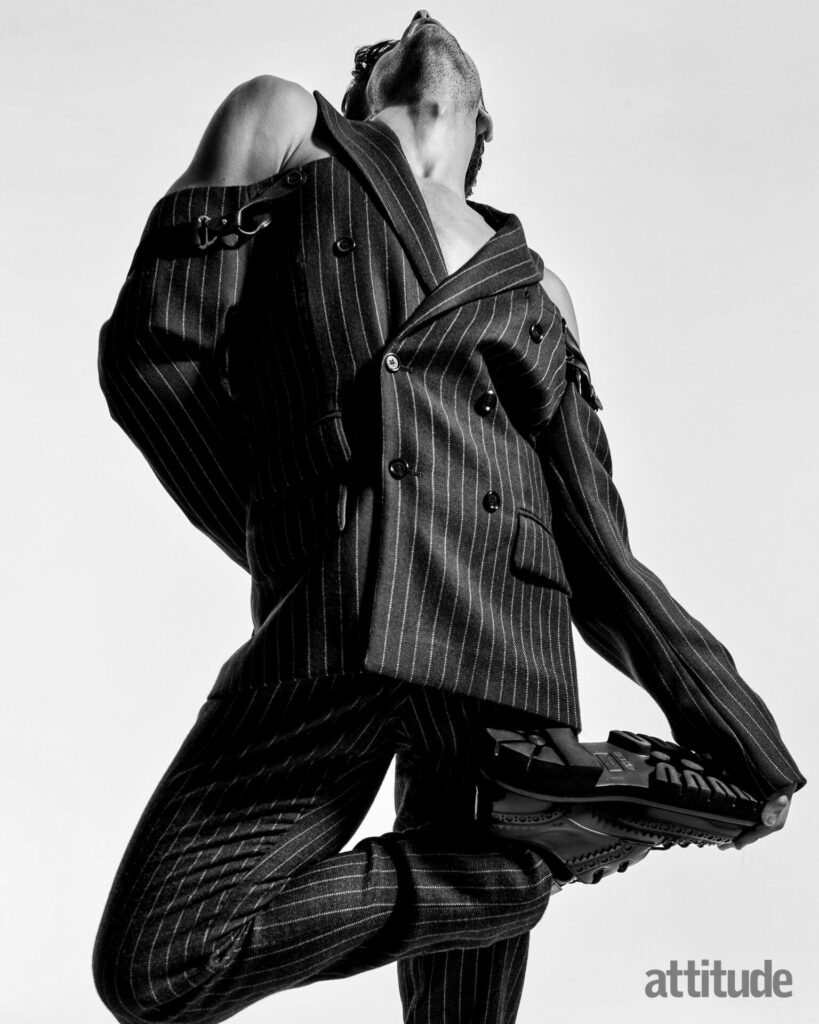
Did you speak to Layton about your injury?
No. I do remember though, when I tore my meniscus last year, he was like [puts on a strong northern accent], “Babe, I did that too. It’s a bad bitch thing. Don’t worry, only bad bitches tear their meniscuses.” And I was like, “Oh! All right, mate, and I love you.” [Laughs]
“I’ve never played a character that has identified as gay on stage before”
As well as in TV and film, I’ve noticed there are more and more LGBTQ+ stories in dance too. Do you feel like you’re getting to explore that more?
It’s really special. I’ve never played a character that has identified as gay on stage before, so it’s definitely — for character development — a lot easier to relate to and to get my teeth into. It’s amazing that we’re having a lot more shows that are telling those stories — I think it’s really important. Also, a huge amount of the community goes to the theatre. The gays love the theatre [laughs]. We just absolutely adore it. So, that’s why I also think that this production of The Nutcracker is going to be so nice — especially for gay men to go and look at characters like Clive and see Clive’s dad Ron and relate to that relationship a little bit and be hopefully quite touched.
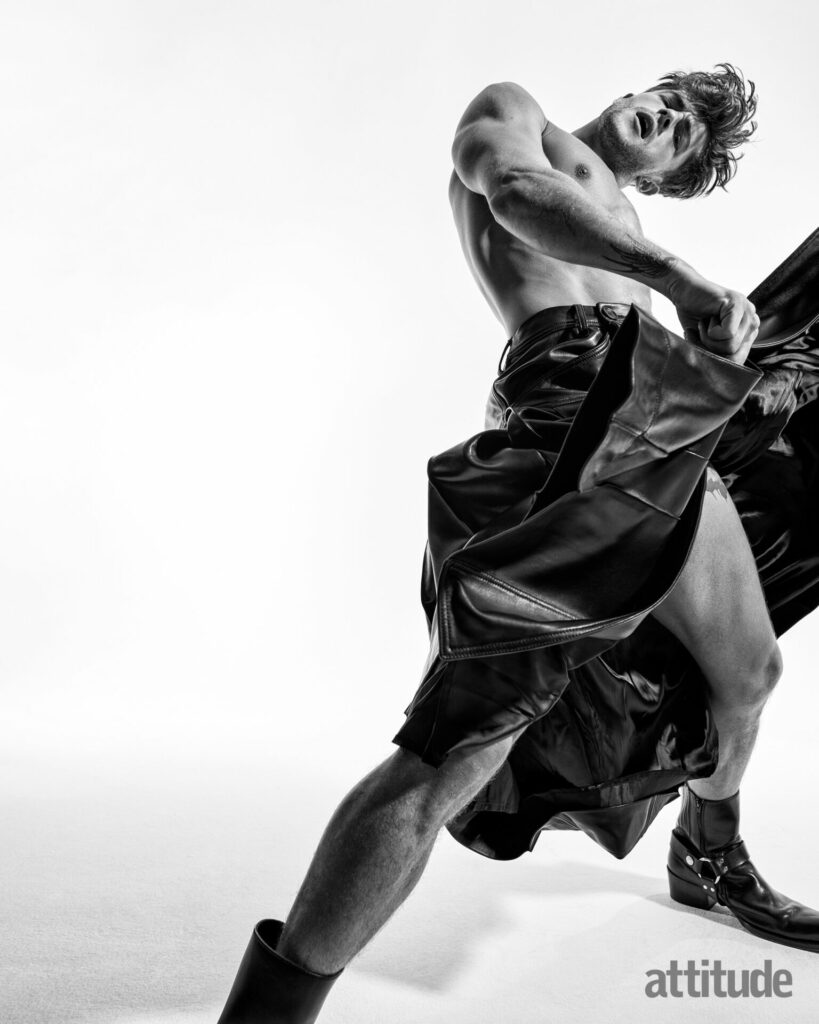
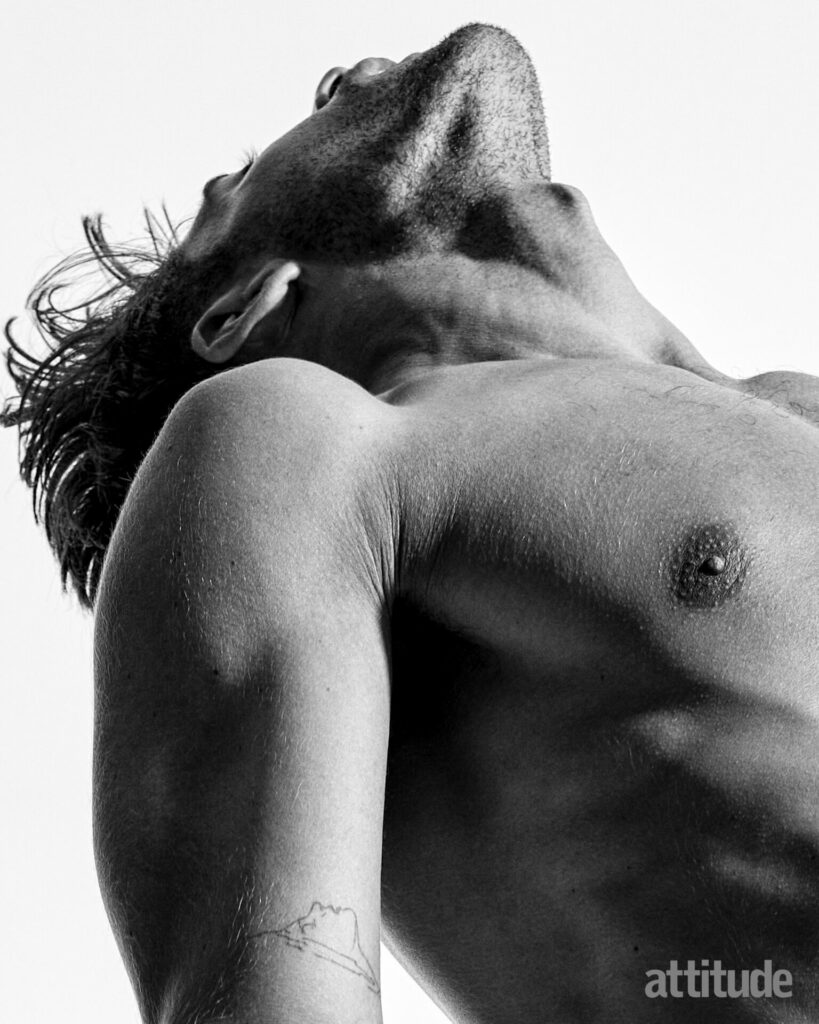
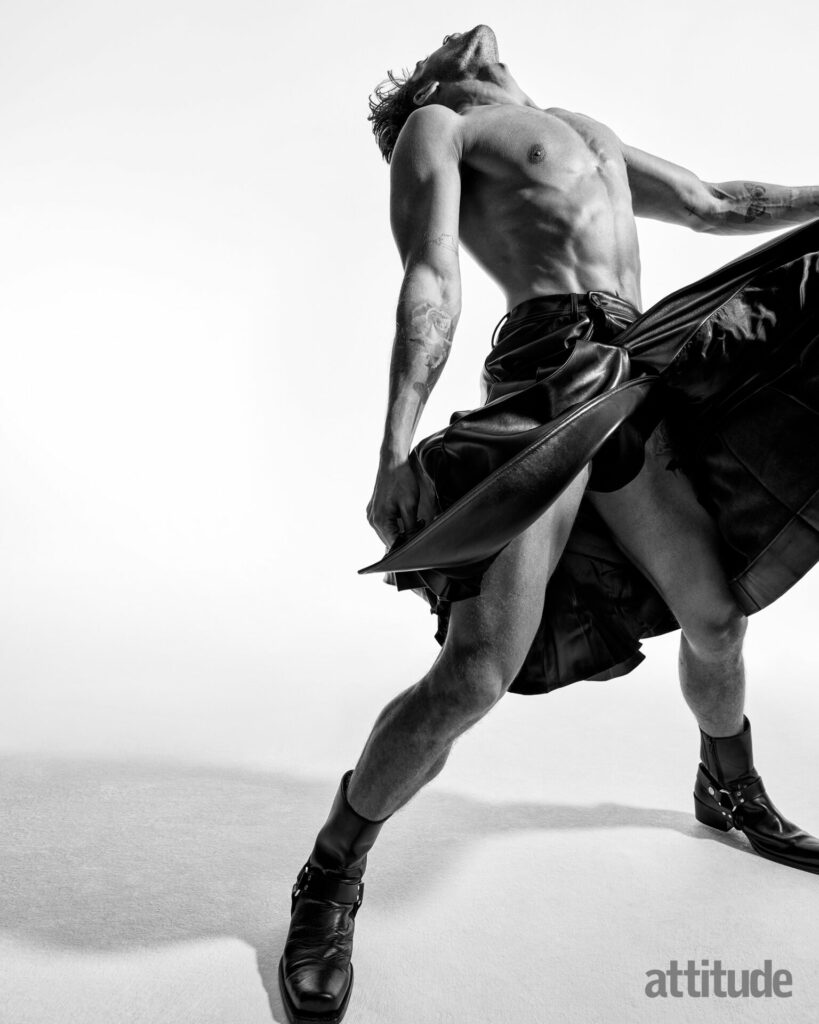
When did you realise you were different?
I think I was in year six, and there was a naughty kid from the secondary school that had to do community service at the school. He was running around with a football, and I was just chasing after him. I thought I admired him, but actually I think I was quite infatuated with him. Coming out for me was really tough because I did not want to be gay; I wanted desperately to be straight. The stigma of a dancer being gay was just so obvious. I didn’t want to be gay, and I struggled for years even when I came out. I think my friends unfortunately put a little bit of pressure on me, being like, “Well, you’ve got with a guy now, you must be gay.” And I’m like, “Fine, I’m gay. Fine, just leave me.” But actually, I wasn’t really that ready.
It’s so sad, you know, you’re so young to understand these feelings. How can someone as, like, a mid-teen be able to comprehend it. I must say, with the trans community, I feel like it’s so difficult for them to navigate and at such a young, naive age.
It’s really helpful to have examples like Heartstopper and RuPaul’s Drag Race.
Absolutely. To have examples like that will mean the world and save lives — especially when we have a government like we do right now. And the way [Sunak] mocked the trans community is just absolutely devastating. So, these shows are helpful more than ever.
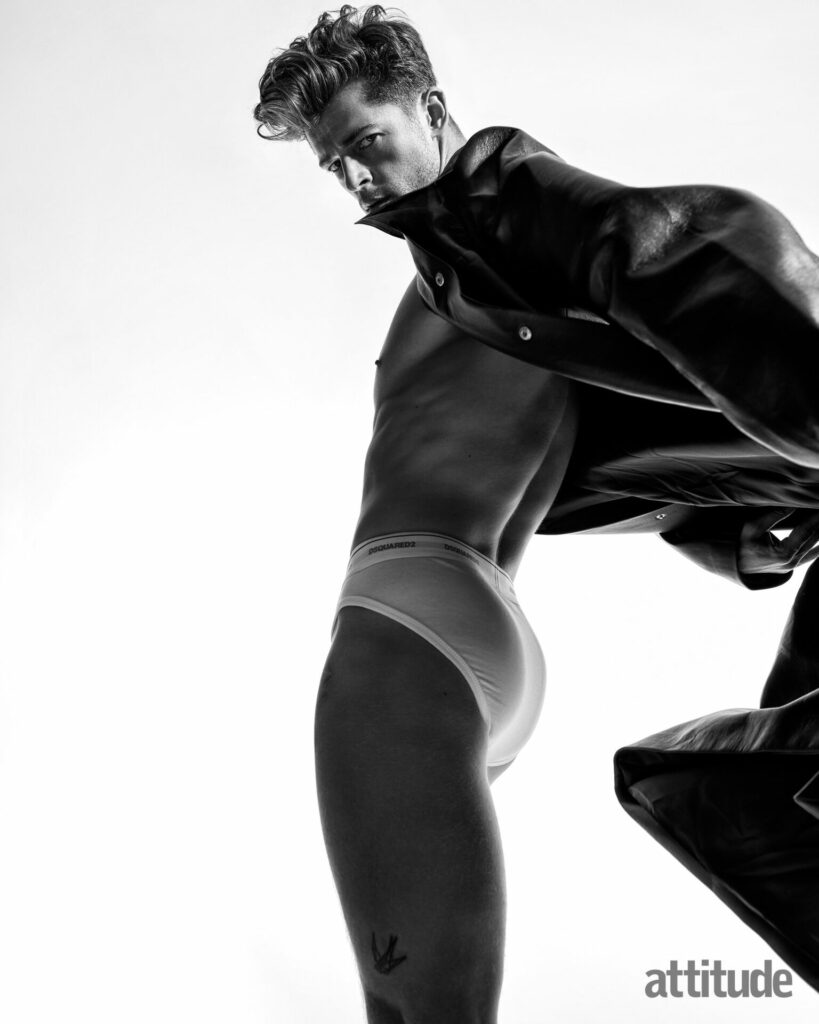
What was it like exploring LGBTQ+ themes with the cast of Nutcracker?
The cast is really small, so we’re also tight. We’re like a little family. There are seven dancers on stage. We’ve all just been really open with conversations. I’ve been speaking a lot with Amonik Melaco — who plays opposite me as the Action Man — about everything. For example, when I go to hug him, how does this feel for me as the character, and how does it feel for him as the Action Man? I’ve been speaking in-depth with Tim Hodges, who plays Ron. I asked Drew, the choreographer and director, questions all the time: “What do you think this means?” “Can we please hold this a little bit longer?” Because one thing that’s beautiful about being a bit older and experienced, even though this is my first time as a leading man, is I feel really comfortable with my inhibitions.
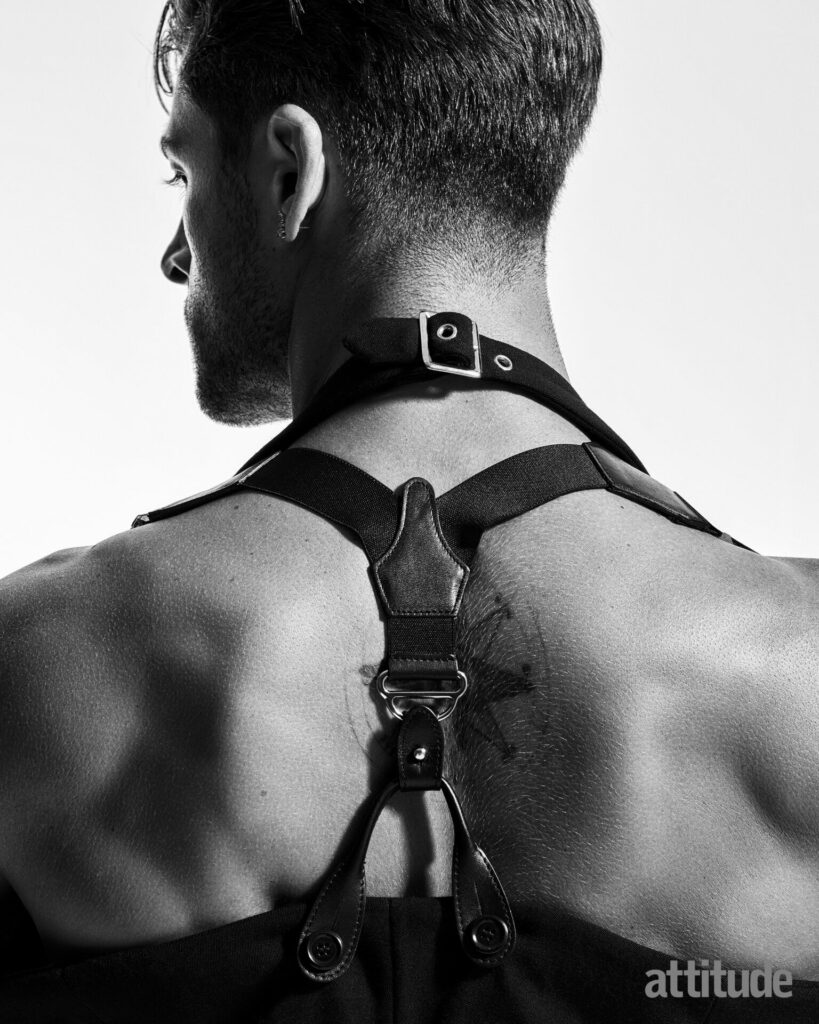
I’m so passionate about acting, and I watch a lot of films, and I study those actors. And I’ve really put my input into things, which is really nice. I’ve worked with Drew a few times. The way he is so open in the room and willing to try anything, and no idea is a bad idea — I can’t tell you how much I absolutely adore him. He’s just an incredible human as well as director and choreographer.
“Dancing will always be my passion and love, but I really get to create with fashion”
You have branched out from dance into the fashion world. How are you finding that?
It’s been crazy. I never thought it would happen. In the past few years, I started getting involved with the big fashion houses, which was honestly a dream. I remember saying three or four years ago, there’s three big houses that I would just dream to be involved with, and they were Dior, Prada, and Christian Louboutin. I’ve worked with all of them now, and it’s just amazing, with their clothes and their fragrances. It’s just a dream come true, and I absolutely love that side of things. Dancing will always be my passion and love, but I really get to create with fashion. People tend to look down on social media and the word ‘influencer’, but it’s really a chance for me to express myself and to combine dance and fashion — like, my two loves in one. And it’s just so special.
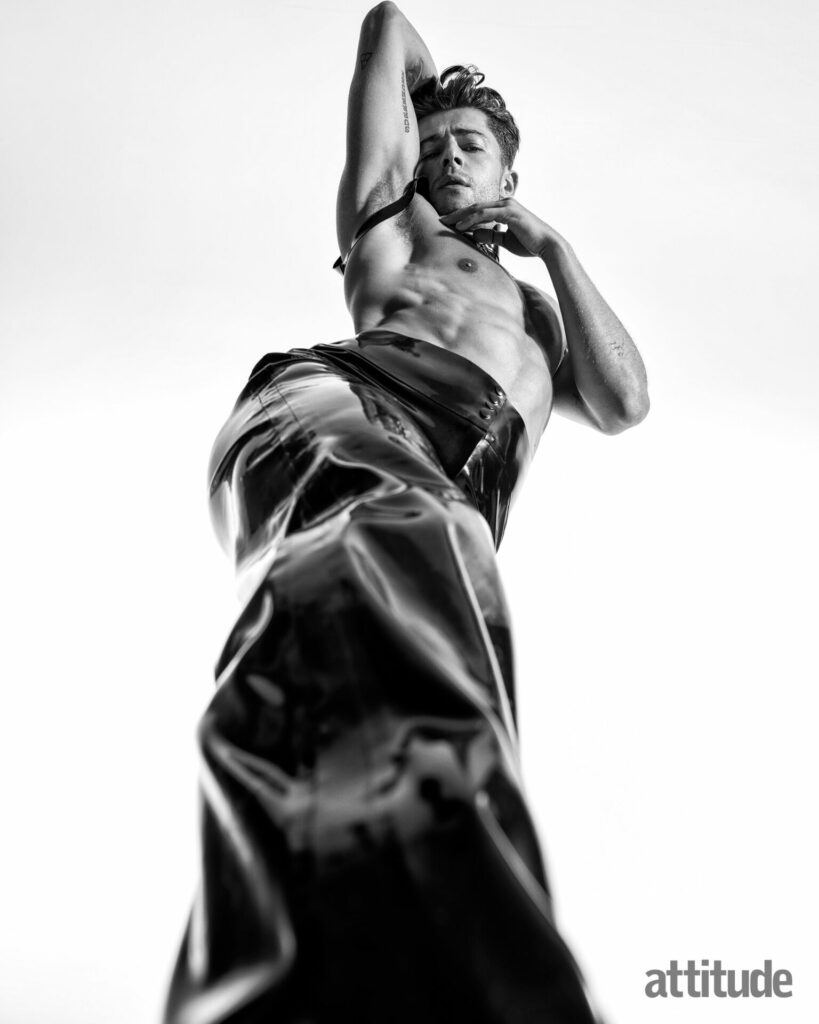
You’re very open about your addiction and your struggles on social media. How important is sharing that journey with people, and how much of it is for you, and how much for other people?
So, I’ve been sober on and off since I was 23. I’m 29 now, so [it’s been] quite a long time. I felt a lot of pressure when I was really open [on social media] a few years ago. The positive side was that I was helping a lot of people, and they were really relating to what I was going through. But then I’d relapse, and I would feel this [enormous amount] of pressure building on top of me. Now, I know deep down that everyone would have open arms and say, “It’s OK, it happens.” But you just can’t help with that self-pressure and that negativity in your head being like, ‘Fuck, everyone’s going to expect you to be sober.’
Even this summer, I had been struggling a lot. In the last year and a half, I had been really trying to do moderation, and that was just after two years of sobriety in Narcotics Anonymous. I really tried moderation, but it’s not possible with drugs and alcohol. For me, it’s just not. I had to have that realisation this summer. It was so painful. But you know, I will share it, and I will stay true to myself. I am more open now. And I’m so glad I’m sober, by the way. It’s just immeasurable how I feel within myself.
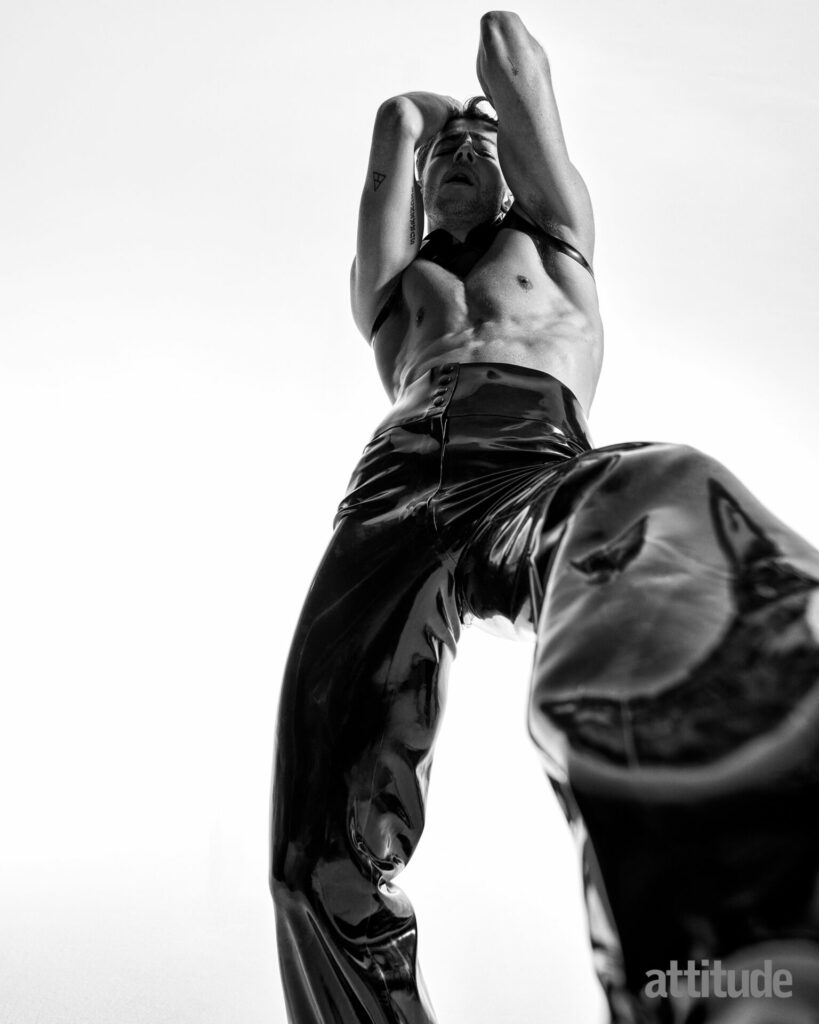
Do you have a support system?
I have a close, tight group of friends — we speak to each other a lot. Because this time around, I’m not doing a 12-step programme, so I’m not in Narcotics Anonymous at the moment. I’ll call my friends, they’ll relapse, and they’ll go, “Fuck! I’ve ruined it!” And I’m like, “No, you haven’t,” and I’m there for them, like they were there for me. I don’t judge them; they don’t judge me, and it’s just part of the journey.
One of the best tools is to find like-minded people and just go [to Narcotics Anonymous], because the realisation is that not everyone is like this — people can go out, they can party in crazy ways and feel fine, and that’s OK. I would do even a tiny thing wrong, and I would know that it was a problem. Addiction to me is doing something that you don’t want to be doing and having no other choice.
Is it hard to stay sober?
I was doing some crazy things to myself in the summer. I was working a lot too. It’s the busiest I’ve ever been. I was in a different country every week and I was flying here, there and everywhere, completely chasing everything — running away at the same time. Eventually, I took myself away to Malta, which was an incredible holiday because I was on my own for the majority of it. I stayed with my friend, but he let me do my own thing in the daytime. I called one of my friends, who had just had a really bad relapse, and I was telling him all these things, but at the time, I was still drinking. I was saying, “Look, you know your life is better when you’re sober and you know that you can do this — you know how beautiful sobriety is.”
As I said it, I was thinking, ‘I’m such a hypocrite, like, what the fuck am I doing?’ And I had this realisation where I was like, ‘I’m literally saying what I need. I’m literally saying it.’ I had planned to have a few wines at dinner that night, and I went, ‘You know what? I’m not drinking tonight. And I’m going to try not to drink the next night as well.’ Since then, about three months ago, I’ve been pretty good.
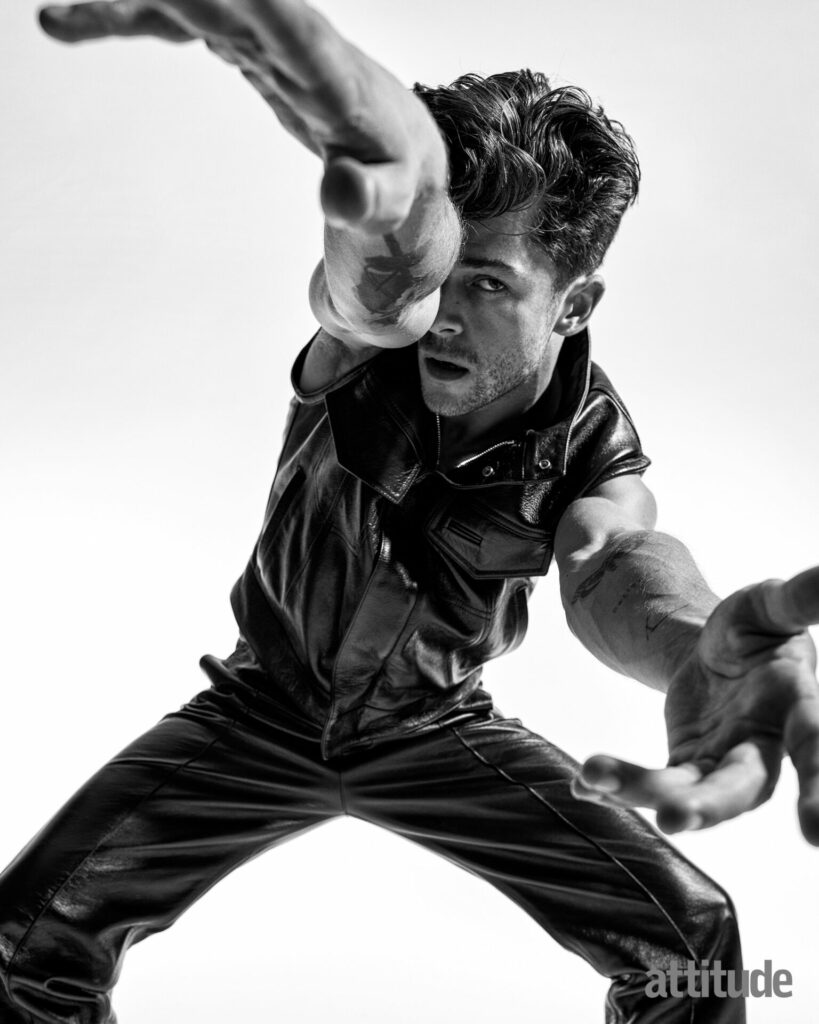
“I do remember very clearly [reaching] rock bottom”
Did you have a moment when you realised you had a problem?
I was in a lot more denial back then, I had no idea what Narcotics Anonymous was. I had a realisation as I was strolling around Old Street at 8am, and I said, ‘I’m going to end up dying so I have two roads, two doors to open — one is sorting this out for the final time.’ For years, I was saying to my best friends and family: “I’m sorting it out, I’m sorting it out. I’m fine, I’m fine, I’m going to sort it out.” And then the following week I would do the exact same thing. But I do remember very clearly [reaching] rock bottom. I said, ‘I’m going to ruin everything, and I won’t be here.’
And it’s hard because I think that I present myself online as a very positive, happy person. But you know, there’s just a side to me which is very dark that comes out. It’s a very scary person, but you know, it’s really hard. So back then my friend said, “Hey, I’m going to go to this thing called Narcotics Anonymous. I think you should come.” And then I went, and it really changed my life. It was amazing to relate to people just like me.
Is it hard to reprogramme your thought process?
Yeah, I really try, and I’d like to congratulate myself. So, if I’m home, and I want to get a takeaway, I’m going to get a takeaway. If I see an item of clothing that’s expensive, I’m like, ‘Oh, that’s steep, but you know what, last weekend, if I was using, I would have spent £350 in a night, if not more — I’m going to get that shirt.’ I’m a lot more lenient with myself. I’ll go to museums, and I’ll go to the cinema, and I’ll get a facial or a massage — I do kind things for myself. One really magical thing about sobriety — I don’t want to be in any way preachy — but I feel things very strongly now. And I love that. And I’m a lot more emotional, I’m a lot more intact. I’m not [feeling] guilt and shame weekly, which is really special.
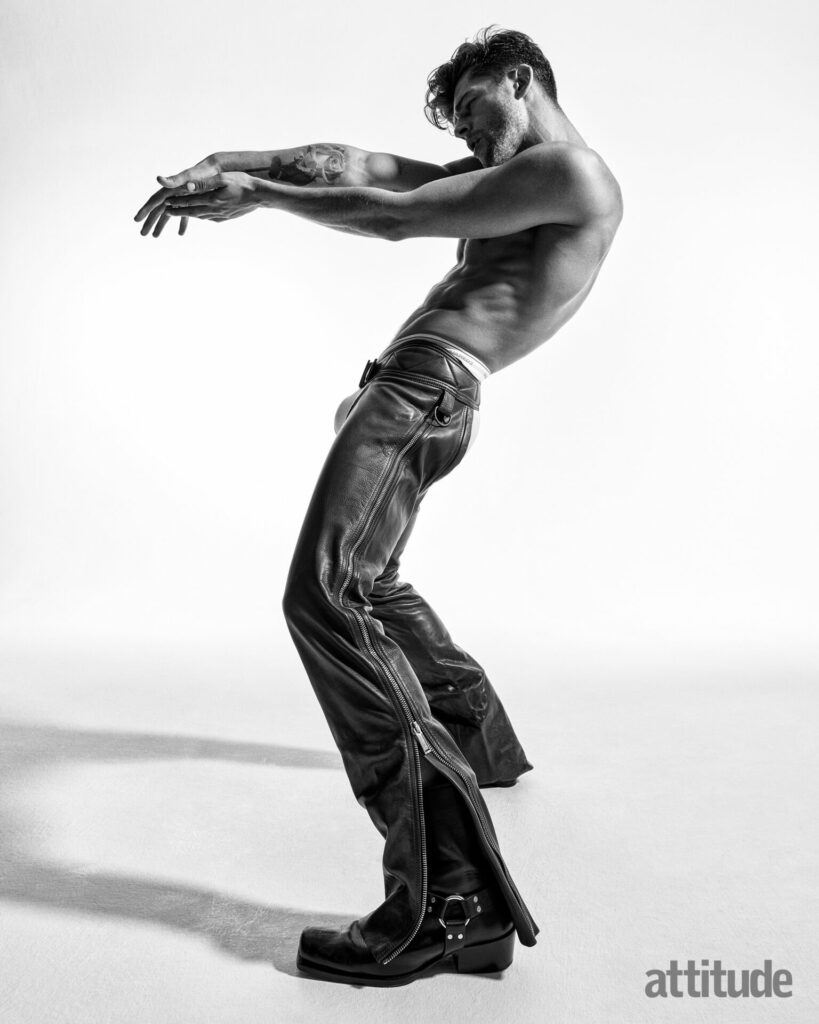
And finally, apart from recovering from your injury and getting back to the role of Clive, what are you looking forward to in 2024?
I’d love to work with another actor on a movie. I’ve been doing films recently. I just finished my sixth film, I think, since lockdown. I love teaching, and I love films, so I’d love to do another feature film with an actor that wants to dance. I’ve been doubling a bit for actors. So, I’d love to do some of those. And who knows what else?!
Nutcracker at the Tuff Nutt Jazz Club is on until 6 January 2024 at the Southbank Centre, London. Get tickets here.
Words and styling Joseph Kocharian Photography Kosmas Pavlos Hair and makeup Josh Knight using Horace Hair and makeup assistant Masaki Kameda Fashion Assistant Aaron Pandher Post-production Dienachbarin
See this feature in the Attitude’s January/February issue – out 14 December.
